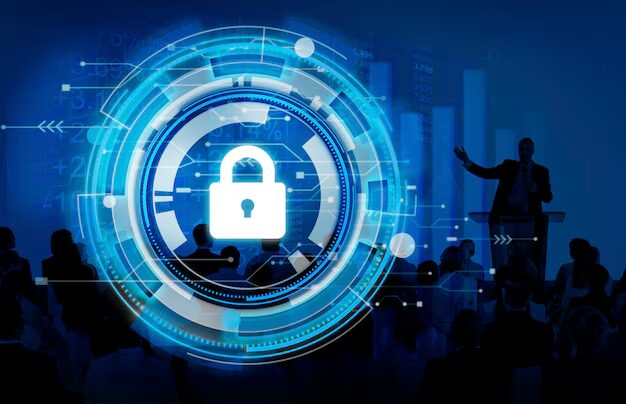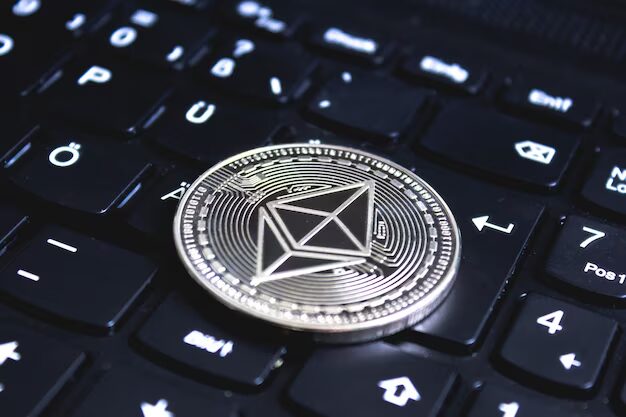The technology you rely on every day—banking, messaging, even blockchain networks—depends on encryption.
But encryption is under attack, and not in the way most people expect.
In five years, quantum computers will tear through the encryption protecting banks, businesses, and personal data—exposing everything.
The U.S. government sees it coming. In 2024, NIST rushed to finalize post-quantum encryption standards. The Hudson Institute estimates a single quantum-powered Bitcoin hack could wipe out $3 trillion.
Most companies are not ready for what’s coming. BlocQ, Inc. is, however.
With quantum cryptography expert Sho Sugiura and cybersecurity strategist Takashi Nishina leading the charge, BlocQ is developing the cryptographic technolgoy that will decide whether digital security survives the quantum era—or collapses under it.
The choice? Adapt now, or react too late.
Which side will you be on?
Meet the Experts Behind BlocQ
BlocQ, Inc. isn’t just another cybersecurity startup. It’s a calculated response to a security crisis that most businesses and governments are still underestimating. Quantum computing is advancing, and with it, the ability to shatter existing encryption models. BlocQ isn’t waiting for that moment to arrive. It’s designing solutions now BlocQ refines its cryptographic breakthroughs through strategic collaborations with leading research institutions. This isn’t about theoretical security measures. It’s about deploying real-world quantum-safe encryption before cybercriminals do.

Photo from Freepik
Sho Sugiura (Co-Founder, CEO) – The Quantum Problem-Solver
When Sho Sugiura looks at cybersecurity, he doesn’t see a problem. He sees an equation that needs solving.
His Ph.D. from The University of Tokyo, specializing in quantum cryptography, and his postdoctoral research at Harvard University on quantum encryption algorithms put him at the forefront of quantum physics and cryptography. He’s worked alongside MIT researchers and led groundbreaking studies at NTT Research, helping shape the future of encryption security.
He’s also not just an academic—his work has been recognized through awards like the JSPS Ikushi Prize and StatPhys27 Best Poster Award.
But here’s what matters: His research isn’t collecting dust in an academic journal. It’s powering BlocQ’s next-generation encryption protocols, making sure blockchain and financial networks don’t become billion-dollar vulnerabilities once quantum attacks begin.
Takashi Nishina (Co-Founder, COO) – BlocQ’s Strategic Force
Developing encryption is one thing. Getting it into the right hands before cybercriminals do is another. That’s where Takashi Nishina comes in.
With an MBA from Wharton and years of experience in finance, business strategy, and cybersecurity, he’s spent time at Japan’s Ministry of Finance, McKinsey & Company, and Palo Alto Networks. That’s a rare mix—someone who understands business, cybersecurity, and global economic risk.
At BlocQ, he’s taking cutting-edge research and making it accessible, scalable, and ready for real-world adoption. Because in the cybersecurity arms race, the best technology means nothing if no one adopts it in time.
Why Quantum Computing is a Security Time Bomb
The risks aren’t hypothetical. In 2024, NIST finalized three post-quantum cryptography standards—the clearest sign yet that encryption is in urgent need of an upgrade.
A single quantum-powered Bitcoin hack could wipe out over $3 trillion. That’s not speculation—it’s the estimate from the Hudson Institute.
These aren’t long-term concerns. Tech giants, banks, and governments are already racing to protect their infrastructure before it’s too late.
BlocQ’s Approach: Real Security, Not Just Theories

Photo from Freepik
Most cybersecurity companies are patching up old systems, hoping they’ll last a little longer. BlocQ is building something different.
Here’s what sets them apart:
- Quantum-Resistant Encryption – Algorithms built to withstand quantum decryption attempts.
- Blockchain Security – Ensuring decentralized systems don’t crumble under quantum threats.
- Cryptanalytic Approach – Proactively identifying vulnerabilities to quantum attacks before being exploited.
What This Means for Global Cybersecurity
The transition to quantum computing won’t happen overnight. But when it does, the industry won’t have time to play catch-up.
Every bank, crypto network, and enterprise relying on pre-quantum encryption will be at risk. By then, it’ll be too late to develop the technology needed to stop attacks before they start.
BlocQ, led by experts like Sugiura and Nishina, is already creating the quantum-resistant infrastructure the world will need.
Why the U.S. Needs This Now
Losing top quantum talent to another country isn’t just a missed opportunity—it’s a national security risk. The U.S. needs the best in quantum cybersecurity, and that’s exactly what Sugiura and Nishina bring.
Bringing BlocQ to the U.S. means:
- Strengthening America’s cybersecurity infrastructure before quantum threats become reality.
- Protecting blockchain, fintech, and Web3 innovations with encryption designed for the future.
- Collaborating with top U.S. institutions to set global standards for quantum-proof security.
Cybersecurity’s Future
Quantum computing isn’t some distant possibility—it’s already here, rewriting encryption rules faster than most industries can keep up. The algorithms protecting everything from global financial systems to personal transactions are running on borrowed time.
The question isn’t if quantum threats will break today’s security models. It’s how soon—and if we’ll be ready when they do.
Most companies and institutions still operate under pre-quantum assumptions, relying on encryption methods that will soon be as outdated as a dial-up modem in a fiber-optic world.
BlocQ, Inc. isn’t waiting to react.
They’re actively building the encryption standards that will decide if financial systems, digital assets, and decentralized networks survive the quantum era or collapse under it.
The choices made today will shape the next generation of cybersecurity. The organizations that prepare now won’t just adapt to the quantum shift—they’ll control it.
Final Thoughts
There’s no such thing as standing still in cybersecurity. You’re either ahead of the threats, or you’re scrambling to react.
Quantum computing will reshape encryption. That’s not a question. The only question is who will be ready and who will be exposed when it does.
The companies preparing now aren’t just securing their own assets. They’re setting the foundation for how digital security will work for the next century.
The future of encryption is being decided right now. The only real risk? Ignoring it.

































